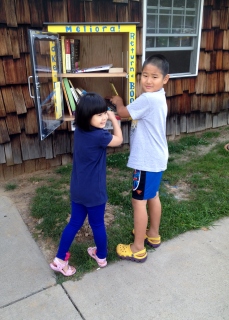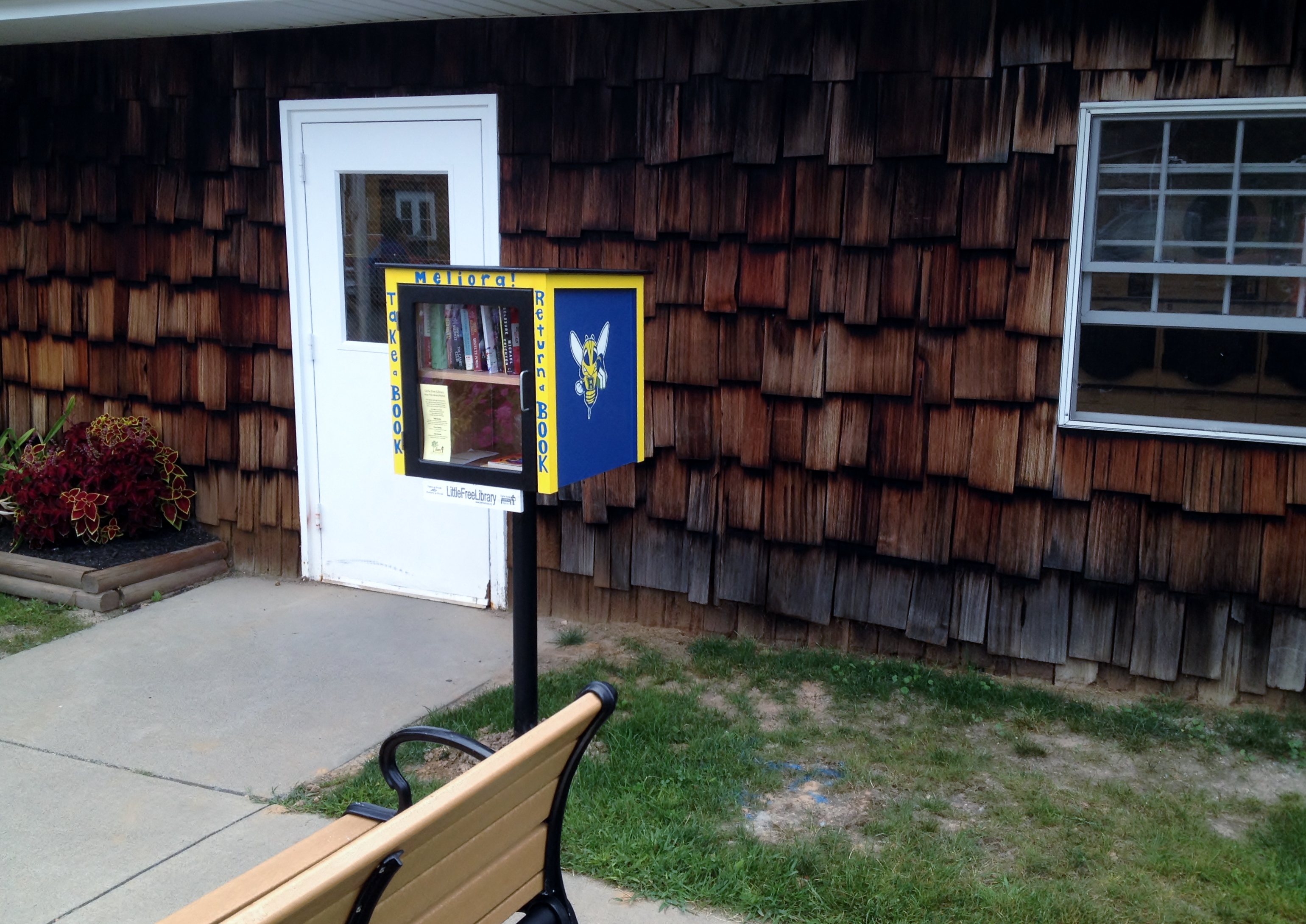The term “sustainable” is often thought as a synonym for ecofriendly. While being “green” is a component of sustainability, the term is actually comprised of three pillars: environmental, social, and economic. This summer University Facilities and Services completed a unique project that embodies those three pillars of sustainability. The result? A Little Free Library.
A Little Free Library is a small box resembling a birdhouse on a stand that holds a curated book collection. It is designed to provide a space for community-wide book sharing. The motto of the program is “take a book, return a book,” a slogan that is often painted on the side of the box as a friendly reminder. University Facilities and Services seized the opportunity to place one in Whipple Park, a complex of University owned townhouses and apartments, frequently inhabited by graduate students and new families.
Firstly, the Little Free Library satisfies the environmental aspect of sustainability. Construction Renovation Manager Tom Calvert and his team constructed the box out of recycled materials from past Facilities projects. Using recycled plywood for the side panels and an old countertop for the roof, the team constructed the box in their campus shop over the course of about a week. The group used an old electrical pipe for the stand and leftover blue and yellow paint from past Athletics and Recreation jobs. Ainslee Cunningham (Class of 2014) reused paint as well to decorate the outside of the box with Rocky. The Little Free Library also promotes print saving, as trading books rather than purchasing new ones decreases the demand for paper products.
Secondly, the Little Free Library fulfills the social pillar of sustainability. The box fosters a sense of community and encourages intercommunity interaction. The box at Whipple Park was placed by the main office building, in front of the bus stop and laundry room, making it a high traffic area where people can meet and greet. Amy Kadrie, recycling coordinator and one of the leaders of the project, visited the Little Free Library just days after its placement and found two young children in front of the box selecting books. Book sharing promotes literacy, and by extension, the flow of ideas. If more than one person in a community has read the same book, then discussion of that book between others can take place and generate a source of connection between residents. According to the Little Free Library organization, one of their goals is “to build a sense of community as we share skills, creativity and wisdom across generations.” It is a great way for Whipple Park inhabitants to discover new favorites in literature and share theirs with others.
 Lastly, the Little Free Library is cost effective. It offers individual community members an alternative to purchasing brand new books, as it is based on a system of exchange. For the box at Whipple Park, Facilities collected dozens of books from employees that ranged from children’s books to novels to young adult literature. Moreover, the Little Free Library was made from recycled materials from past facilities’ projects, and thus, there was no need to purchase new materials to construct it. Calvert not only helped build the box but he says, “I also donated books. My wife’s a school teacher in the city and they have one there.”
Lastly, the Little Free Library is cost effective. It offers individual community members an alternative to purchasing brand new books, as it is based on a system of exchange. For the box at Whipple Park, Facilities collected dozens of books from employees that ranged from children’s books to novels to young adult literature. Moreover, the Little Free Library was made from recycled materials from past facilities’ projects, and thus, there was no need to purchase new materials to construct it. Calvert not only helped build the box but he says, “I also donated books. My wife’s a school teacher in the city and they have one there.”
Little Free Library construction is not just a local project taken on by the University of Rochester Facilities and Services, but is also a global trend. Previously named “Habitat for the Humanities,” and “House of Stories,” the nonprofit organization Little Free Library was started by social entrepreneur Tod Bol in Hudson, Wisconsin. It has grown worldwide, having registered “libraries” in Canada and Afghanistan. Now, anyone can register their own Little Free Library on their website and contribute to the global map that illustrates all the various locations in which these book sharing boxes exist. These boxes make an impact on the earth, people’s communities, and their pockets. Not only that, but “the library itself is a piece of neighborhood art!”
For more locations of Rochester’s Little Free libraries, click this link.
For a video of how to create your own Little Free Library in your community, click to watch this video.
For more pictures of the Little Free Library at Whipple Park, check out this album on our Facebook page, UR Sustainable!
Written by Julie Elliot, Class of 2015

